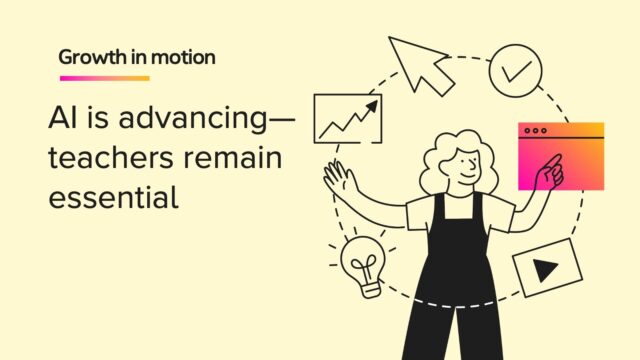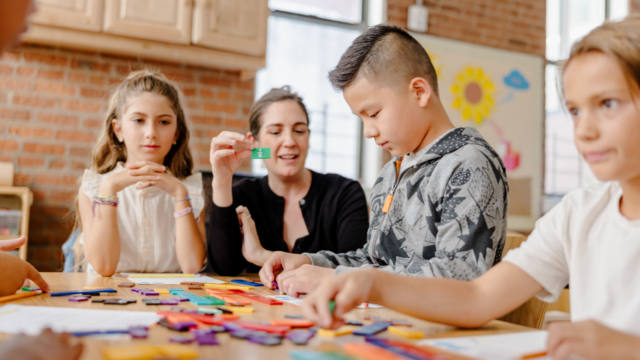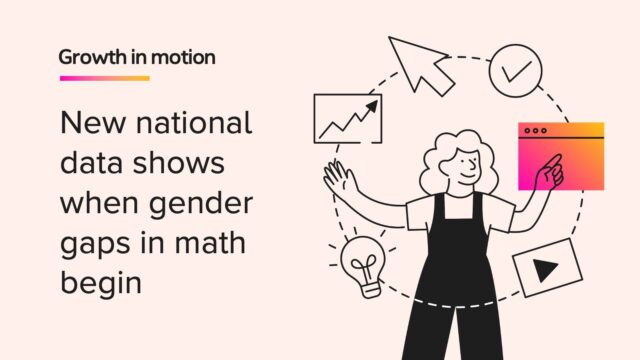
While national data shows a range of future plans for students after their K-12 career ends, we know this with certainty: A young person leaving public school needs to be able to make choices for themselves as they enter into and embrace an increasingly complex world on their own terms. Schools must equip students for their next steps; hopefully one of four options: a career-path job, two-year college without remediation, 4-year college, or military service. The question, then, becomes, what kind of school is best suited to prepare all young people for whatever path they want to pursue in life? To my mind, the answer is simple – a model school.
What Is the Definition of a Model School?
So what is a model school? Although the name is simple, the way to become a model school is anything but. For thirty years, ICLE – now The Center for Model Schools – has defined and recognized model schools as those demonstrating rapid growth as a result of deliberate efforts to ensure a culture of high expectations for each and every student. Model schools employ exemplary, scalable strategies that lead the way and inspire teams at other schools to join the movement.
Features of a Model School
Over the years the defining features of a model school have had to evolve. Now, we’re updating the meaning of a model school to include recent evidence-based practices and reflect the realities of K-12 education today. Model schools ensure that all students are:
- Academically prepared to move on to the next level, whether it’s rising a grade, moving up to a new school, or graduating college, career, and life-ready, educators in a model school do whatever it takes for every child to meet and exceed standards.
- Equipped with the social skills they need to regulate behavior, manage conflict, and make good choices. In a model school, educators know how to support students so that they can actively engage in learning and find paths and outlets for their interests and passions.
- Engaged in joyous learning where their minds are stimulated, they constantly interact with peers, and they find relevance in content and materials. Educators in a model school activate student agency and have fun doing so.

How to Become a Model School
I get asked all the time how to become a model school. The quick answer is that you can apply to be recognized as a model school. In addition to meeting the criteria, I also tell folks that it’s all about the journey. Yes, we celebrate achievement at our annual Model Schools Conference, as it is important to highlight current schools that have accomplished clear goals. But compelling stories of how educators have organized to build a model school are important too, as they serve as seeds that can be germinated in different soil and still grow into something beautiful. There are principles that can serve as inspiration for those who want to become a model school.
In model schools, the staff is organized to:
- Collaborate with each other in order to improve their practice. They constantly review data, such as student work and assessment results, to adjust instruction according to student needs. Educators in model schools know how to use leading indicators of student achievement and well-being to ensure that all students are on paths to success.
- Provide agency to children and adults. In a model school, students have options, and their voices are respected and channeled for the collective good. And so do the adults. In classrooms and within a model school, adults use their passions and interests to create a variety of learning environments, run powerful classrooms, and exercise their leadership within the school.
- Sustain a culture of excellence. Educators in model schools are inspired by visionary leadership, hold each other accountable, and include multiple voices in improvement efforts. Parents and family members are welcome throughout the school. Children are loved, valued, and respected. Adults are present and love coming to work every day to achieve a collective goal.
- Provide evidence-based instruction and interventions. Curriculum, materials, professional development, interventions, and technology in a model school are grounded in evidence about what works to enable all students to thrive. Emotional wellness is inextricably linked to academic achievement and the school culture and environment. Leaders and educators attend to the multiple, varied needs of students and their families, providing mental health supports as needed, and leveraging community partnerships to scale and sustain wellness.
- Ensure an equity lens. Educators in a model school don’t compromise when it comes to meeting the needs of all students. Resources are allocated according to vision and need, cultural relevance is embedded in every aspect of the school, and educators make sure that all students and families are welcomed and embraced within the school environment.
There are nearly 14,000 school districts in America. There is no one path to excellence, nor is there one way to become a model school. Model schools are able to describe their journey in a compelling way that inspires others. They show progress towards a collective goal, and they have created the conditions for success for all students to thrive. Model schools are connected, adaptive, and ever-growing school communities where adults are supported and challenged to do their best work in support of each and every child.
***
Are you looking for ways to grow your school? Watch our webinar to learn strategies to help you successfully reach your school’s goals.
Join more than 5,000 educators in 100+ sessions at the 33rd Annual Model Schools Conference in Washington, DC, from June 22–25, 2025, where you can learn more about school improvement plans.
Join us for the 33rd Annual Model Schools Conference | June 2025 | Washington, DC












